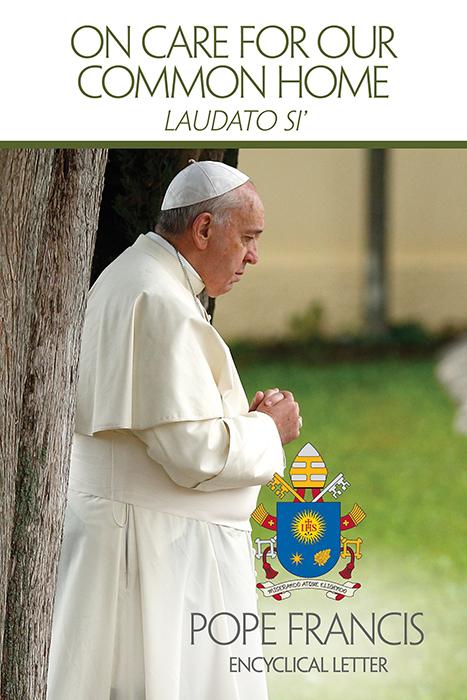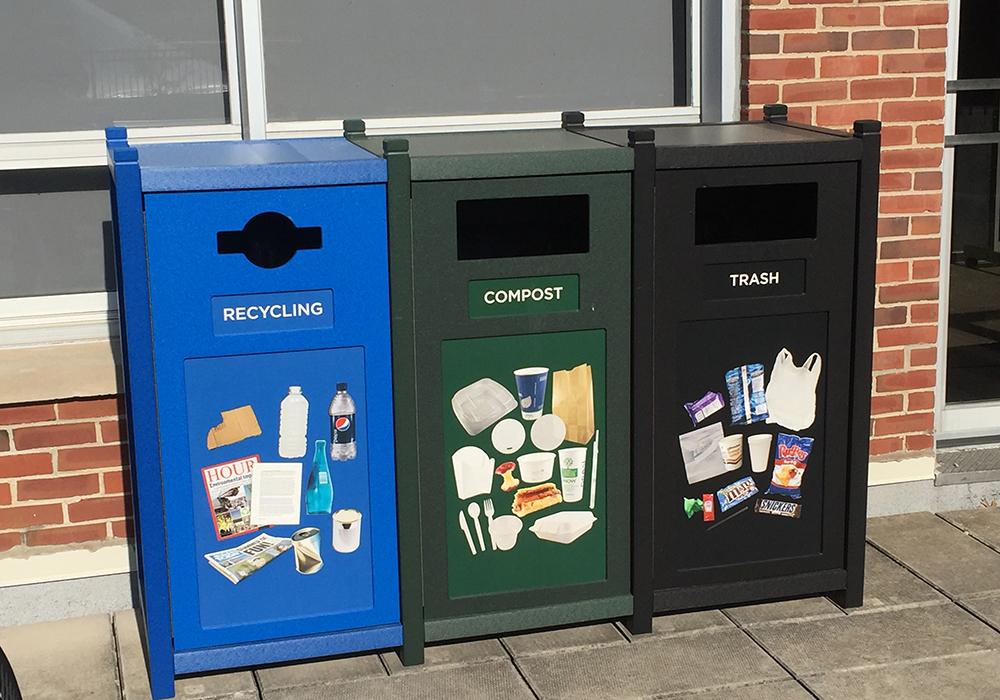For those still not familiar with Pope Francis' ecological encyclical, "Laudato Si', on Care for Our Common Home," ten years after its release, it is not about pretty flowers and furry animals. It's about how we as God's children can live out our lives in harmony with creation.

This is the cover of the English edition of Pope Francis' encyclical on the environment, "Laudato Si', on Care for Our Common Home." CNS/Courtesy U.S. Conference of Catholic Bishops.
Click on the image to enlarge.
|
In this extraordinary letter, and subsequent documents like Laudate Deum in 2023, Francis pulled no punches. He stated clearly and emphatically that we have failed in our awesome charge to be stewards of creation. Instead, we have selfishly taken from creation and irreverently abused it, as if we are entitled to whatever we want no matter the cost.
This tragically selfish approach to Earth's environment — that sustains all life — is to the detriment of the poor and vulnerable. This is particularly true when it comes to human-caused climate change, which has already affected tens of millions of people worldwide, born and unborn, many who have contributed least to the problem.
More extreme weather events, drought, wildfire, flooding, famine and disease are attributable to climate change that is primarily driven by burning fossil fuels. With the Trump administration's promotion of fossil fuels and reversals of climate action, climate-induced disasters will continue to worsen.
Related:
US leaders claim to protect human life,
but neglect to care for creation that sustains it.
In Laudato Si', Francis counseled that our response to this threat should be one of love, with concern for the common good. He explained that the natural world is not simply a resource to be exploited for human benefit, but has intrinsic value simply because God created it. We are therefore morally obligated to care for God's creation. If we don't, then we commit a grave sin, either by commission or omission.
The U.S. bishops have been relatively silent on this point. Admittedly, the U.S. Conference of Catholic Bishops has addressed environmental issues, including climate change, both in their guide for faithful citizenship and on their website. However, given the gravity of the climate crisis, the bishops' conference has underprioritized this as a grave issue of human life and dignity. The bishops' tepid response to Laudate Deum and its references to climate change reflects that indifference.

Recycle bins are seen on the campus of the University of Dayton in Ohio. Pope Francis' encyclical on the environment has prompted some U.S. Catholic universities to undertake green projects.
CNS/Courtesy University of Dayton. Click on the image to enlarge.
|
Thus, we have become a nation of believers, lay and religious alike, that do not fully grasp the intimate connection between ourselves as God's creatures and God's creation. Indeed, while a select few dioceses and parishes have meaningfully responded to the message of Laudato Si', in the years since its release the U.S. church overall has done relatively little to address climate change, which has contributed to the suffering that tens of millions are already experiencing, and will incur in the future. This includes not prioritizing sustainability and emissions reductions in the majority of dioceses, and rarely calling out public officials who oppose climate action.
Related:
What Catholic bishops have, and haven't, said about the 2024 election
Moreover, the vast majority of dioceses do not have any dedicated staff or funding for caring for creation or environmental justice. According to various networks and committees focused on creation care in which I participate, those parishes that do have care for creation ministries are usually afforded the blessings of their pastors, but little if any significant funding or other resources.
Data shows that some Christian religious leaders never mention the issue of climate change to their congregations. Perhaps they fear backlash from parishioners who erroneously feel that environmental issues are part of a political agenda and not a grave moral problem.
While abortion takes top-billing in pro-life ministries, where are the capital campaigns for creation, "40 Days" for environmental justice or widely promoted Catholic climate marches? Lost are likely millions of rosaries, intentions, adorations, novenas and other prayers that could have been offered for creation or for those suffering from environmental degradation and climate change.
A change of heart — an ecological conversion — is needed to cherish God's creation and prioritize it as a moral imperative.
On this 10th anniversary of one of the most extraordinary documents in the church's history, we would do well to read or reread Laudato Si' — and then heed Francis' call for an integral ecology and better stewardship of creation, living a philosophy of sustainability that directly supports social justice and life itself.
If Christians pride ourselves on respecting life, then we must also respect that which sustains life: God's creation. "Living our vocation to be protectors of God’s handiwork is essential to a life of virtue; it is not an optional or a secondary aspect of our Christian experience," wrote Francis. That's the Laudato Si' message.
This story appears in the Laudato Si' at 10: Impact on the church and world and The Legacy of Pope Francis feature series.